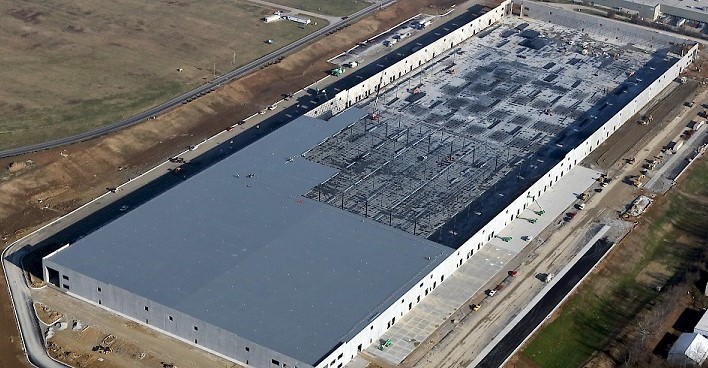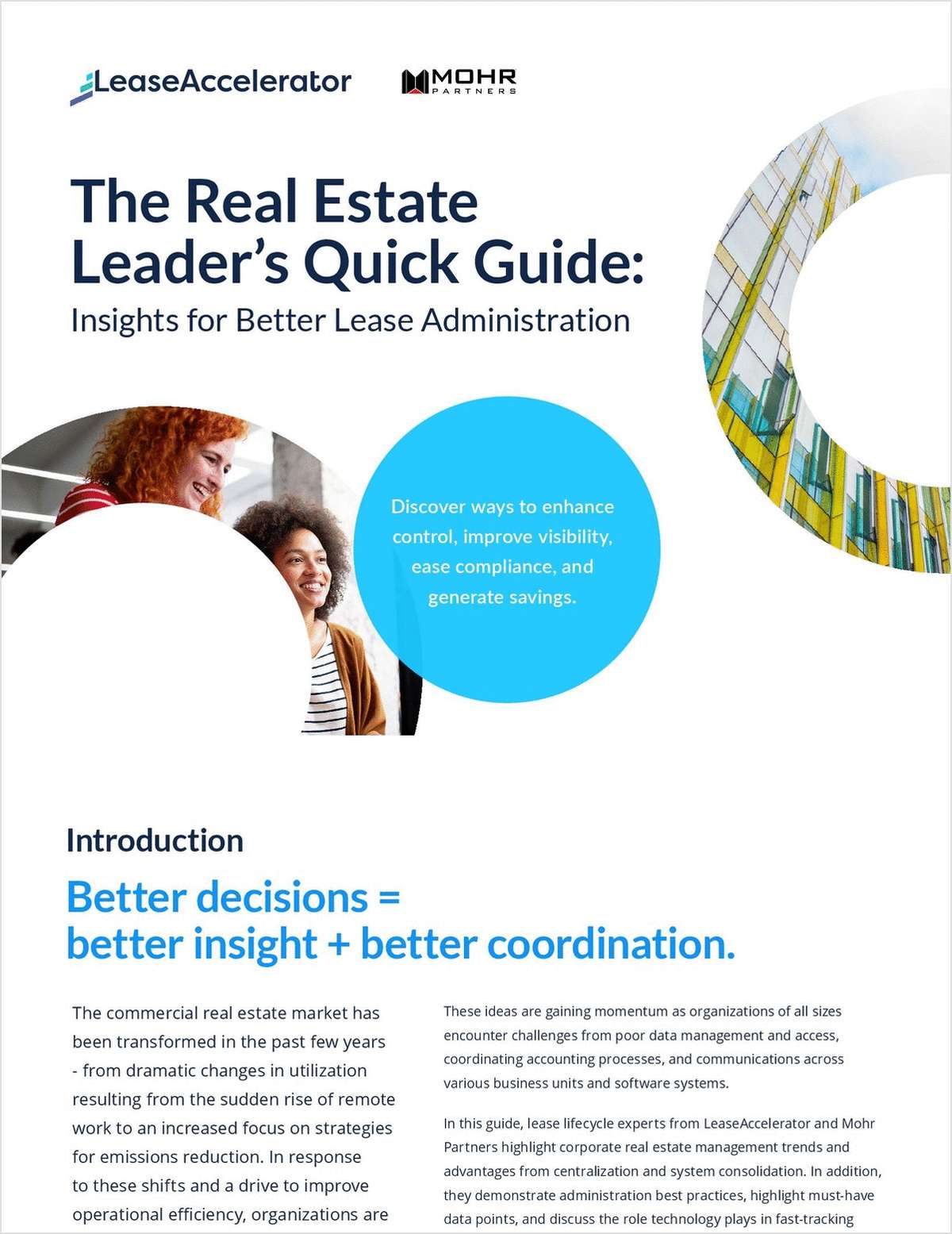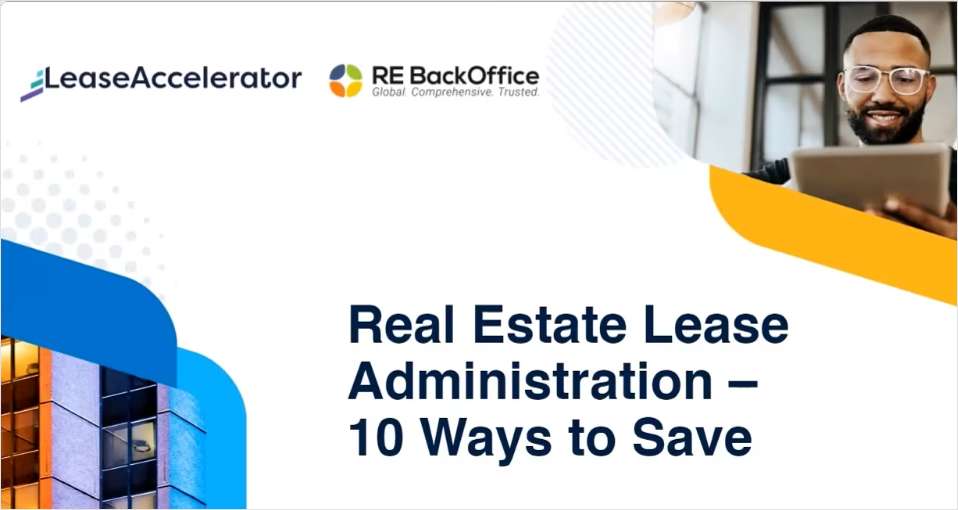 CHICAGO—Earlier this week, GlobeSt.com reported that the demand for spec construction in the industrial sector was outstripping the pace of new construction projects. Some have begun to wonder if it is time to somehow quicken that pace to meet the intensifying demand from users. But Erik Foster , who leads Avison Young's national industrial capital markets team in Chicago, tells GlobeSt.com that it's quite likely that the pace of new construction will remain careful and deliberate for a long time. And much of that can be attributed to the impact of the most recent recession. “Banks and other lenders are now making developers put real equity to work,” he says, and that is very different from what happened during the construction boom of roughly ten years ago, which covered the landscape with a lot of empty buildings. Back then, developers were asked to kick in much less of their own money, and the new requirements have shut out many builders. That does not mean, however, that there is a lack of capital. In fact, there is a great deal of it. And unlike the last building boom, it now comes from a wide variety of sources, including foreign investors, especially from Canada and South America, all seeking to get into the US market. But lenders no longer use the programmatic structures that allowed money to flow into multiple projects, Foster says. Instead, the cautious attitude that grew out of their experiences in the recession means “the equity is much smarter, and the equity is for the most part deal by deal.” Therefore, these days “developers are engaging capital experts like us to help them select the correct equity partners. That didn't happen in the past.” Making that match for a spec project takes a lot of work. The prospective equity partner is making a big bet, Foster points out. “They are not buying an existing asset that has a proven track record. You're asking an equity partner to believe in your dream, and that is not easy.” The whole process helps ensure that the market will remain disciplined. Foster does believe the intense demand for industrial product may cause the pace of spec construction to pick up a bit. Still, for the most part, the careful, restrained method “is the new normal.”
CHICAGO—Earlier this week, GlobeSt.com reported that the demand for spec construction in the industrial sector was outstripping the pace of new construction projects. Some have begun to wonder if it is time to somehow quicken that pace to meet the intensifying demand from users. But Erik Foster , who leads Avison Young's national industrial capital markets team in Chicago, tells GlobeSt.com that it's quite likely that the pace of new construction will remain careful and deliberate for a long time. And much of that can be attributed to the impact of the most recent recession. “Banks and other lenders are now making developers put real equity to work,” he says, and that is very different from what happened during the construction boom of roughly ten years ago, which covered the landscape with a lot of empty buildings. Back then, developers were asked to kick in much less of their own money, and the new requirements have shut out many builders. That does not mean, however, that there is a lack of capital. In fact, there is a great deal of it. And unlike the last building boom, it now comes from a wide variety of sources, including foreign investors, especially from Canada and South America, all seeking to get into the US market. But lenders no longer use the programmatic structures that allowed money to flow into multiple projects, Foster says. Instead, the cautious attitude that grew out of their experiences in the recession means “the equity is much smarter, and the equity is for the most part deal by deal.” Therefore, these days “developers are engaging capital experts like us to help them select the correct equity partners. That didn't happen in the past.” Making that match for a spec project takes a lot of work. The prospective equity partner is making a big bet, Foster points out. “They are not buying an existing asset that has a proven track record. You're asking an equity partner to believe in your dream, and that is not easy.” The whole process helps ensure that the market will remain disciplined. Foster does believe the intense demand for industrial product may cause the pace of spec construction to pick up a bit. Still, for the most part, the careful, restrained method “is the new normal.”  CHICAGO—Earlier this week, GlobeSt.com reported that the demand for spec construction in the industrial sector was outstripping the pace of new construction projects. Some have begun to wonder if it is time to somehow quicken that pace to meet the intensifying demand from users. But Erik Foster , who leads Avison Young's national industrial capital markets team in Chicago, tells GlobeSt.com that it's quite likely that the pace of new construction will remain careful and deliberate for a long time. And much of that can be attributed to the impact of the most recent recession. “Banks and other lenders are now making developers put real equity to work,” he says, and that is very different from what happened during the construction boom of roughly ten years ago, which covered the landscape with a lot of empty buildings. Back then, developers were asked to kick in much less of their own money, and the new requirements have shut out many builders. That does not mean, however, that there is a lack of capital. In fact, there is a great deal of it. And unlike the last building boom, it now comes from a wide variety of sources, including foreign investors, especially from Canada and South America, all seeking to get into the US market. But lenders no longer use the programmatic structures that allowed money to flow into multiple projects, Foster says. Instead, the cautious attitude that grew out of their experiences in the recession means “the equity is much smarter, and the equity is for the most part deal by deal.” Therefore, these days “developers are engaging capital experts like us to help them select the correct equity partners. That didn't happen in the past.” Making that match for a spec project takes a lot of work. The prospective equity partner is making a big bet, Foster points out. “They are not buying an existing asset that has a proven track record. You're asking an equity partner to believe in your dream, and that is not easy.” The whole process helps ensure that the market will remain disciplined. Foster does believe the intense demand for industrial product may cause the pace of spec construction to pick up a bit. Still, for the most part, the careful, restrained method “is the new normal.”
CHICAGO—Earlier this week, GlobeSt.com reported that the demand for spec construction in the industrial sector was outstripping the pace of new construction projects. Some have begun to wonder if it is time to somehow quicken that pace to meet the intensifying demand from users. But Erik Foster , who leads Avison Young's national industrial capital markets team in Chicago, tells GlobeSt.com that it's quite likely that the pace of new construction will remain careful and deliberate for a long time. And much of that can be attributed to the impact of the most recent recession. “Banks and other lenders are now making developers put real equity to work,” he says, and that is very different from what happened during the construction boom of roughly ten years ago, which covered the landscape with a lot of empty buildings. Back then, developers were asked to kick in much less of their own money, and the new requirements have shut out many builders. That does not mean, however, that there is a lack of capital. In fact, there is a great deal of it. And unlike the last building boom, it now comes from a wide variety of sources, including foreign investors, especially from Canada and South America, all seeking to get into the US market. But lenders no longer use the programmatic structures that allowed money to flow into multiple projects, Foster says. Instead, the cautious attitude that grew out of their experiences in the recession means “the equity is much smarter, and the equity is for the most part deal by deal.” Therefore, these days “developers are engaging capital experts like us to help them select the correct equity partners. That didn't happen in the past.” Making that match for a spec project takes a lot of work. The prospective equity partner is making a big bet, Foster points out. “They are not buying an existing asset that has a proven track record. You're asking an equity partner to believe in your dream, and that is not easy.” The whole process helps ensure that the market will remain disciplined. Foster does believe the intense demand for industrial product may cause the pace of spec construction to pick up a bit. Still, for the most part, the careful, restrained method “is the new normal.”
Continue Reading for Free
Register and gain access to:
- Breaking commercial real estate news and analysis, on-site and via our newsletters and custom alerts
- Educational webcasts, white papers, and ebooks from industry thought leaders
- Critical coverage of the property casualty insurance and financial advisory markets on our other ALM sites, PropertyCasualty360 and ThinkAdvisor
Already have an account? Sign In Now
© 2024 ALM Global, LLC, All Rights Reserved. Request academic re-use from www.copyright.com. All other uses, submit a request to [email protected]. For more information visit Asset & Logo Licensing.








